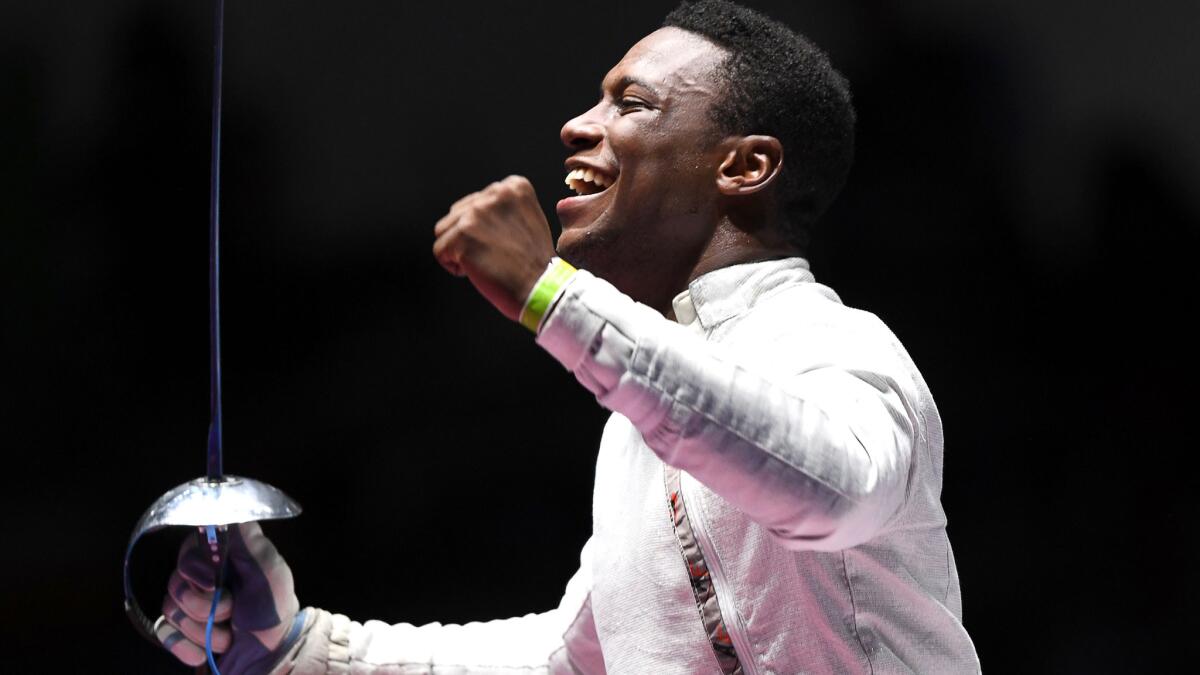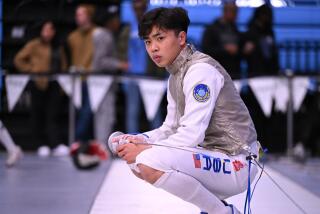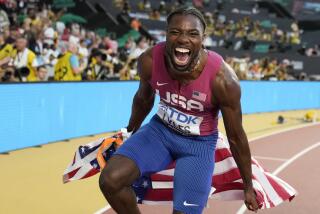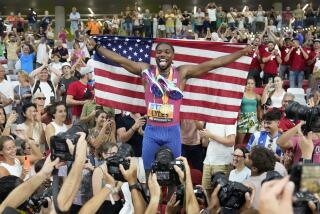Daryl Homer’s journey leads to a silver medal in Olympic fencing

The journey began some 20 years ago, with a little boy looking at a picture of a fencer in a children’s dictionary.
The sport looked cool to him, so he ran to his mother and said: “That’s what I want to do.”
On Wednesday night, the journey carried Daryl Homer to the finals of the men’s saber at the 2016 Summer Olympics.
It wasn’t a gold-medal moment, not with Aron Szilagyi of Hungary winning the bout by a comfortable 15-8 margin, but Homer showed a smile on the podium.
“Happy that I competed,” he said later. “Happy that I left it all out there.”
The victory puts him in rare company as only the fourth American male to medal in saber, the first since Peter Westbrook took bronze at the 1984 Los Angeles Games.
There is a connection between the men that reaches beyond their place in the record books.
Westbrook was a black fencer at time when that was a rarity in the sport. He later started a New York City foundation to help inner-city youths get involved in the sport.
Homer, a Virgin Islands-born black kid living in the Bronx, after his random encounter with the dictionary, got his start with the foundation.
“I wouldn’t have found an access point to fencing without Peter,” he said.
His career would eventually include success at the junior level and All-American honors at St. John’s University. He made the U.S. Olympic team for the 2012 London Games and finished a respectable sixth.
Then came a historic performance in 2015, where a silver medal made him the first American man to stand on the podium at a world championships tournament. It was at that point, however, that his career took a dip.
“I struggled with my own confidence,” he said. “You start tinkering a little bit, trying to get better, and you fall off.”
Before these Olympics in Rio de Janeiro, Homer watched video of Westbrook in 1984. He wanted to know: What were you thinking about?
Westbrook put it in simple terms, telling Homer to take the pressure off and have fun.
That attitude carried Homer through impressive victories in the first three rounds on Wednesday. It helped him survive a semifinal bout against Mojtaba Abedini of Iran, a contest that came down to a final, winner-take-all point.
Homer took a moment before stepping to the en garde line.
You’re going for it, he told himself.
The match against Szilagyi was a different matter. The defending champion from the 2012 Games opened an early lead and never really let Homer into the bout.
“Daryl is a very aggressive and dynamic fencer who is one of the fastest fencers here, and my strategy was to break his dynamism in the middle so I don’t let him attack me aggressively so I don’t need to go back,” Szilagyi said. “And it worked.”
Still, Homer could feel upbeat about not only joining a short list of American fencers but also giving this year’s team a second individual silver following Alex Massialas’ run in foil. The American men have not done this well in Olympic fencing in more than a century.
Asked if he might try to compete at the 2020 Tokyo Games, Homer smiled again. It seems the journey will continue.
david.wharton@latimes.com
Twitter: @LATimesWharton
More to Read
Go beyond the scoreboard
Get the latest on L.A.'s teams in the daily Sports Report newsletter.
You may occasionally receive promotional content from the Los Angeles Times.







